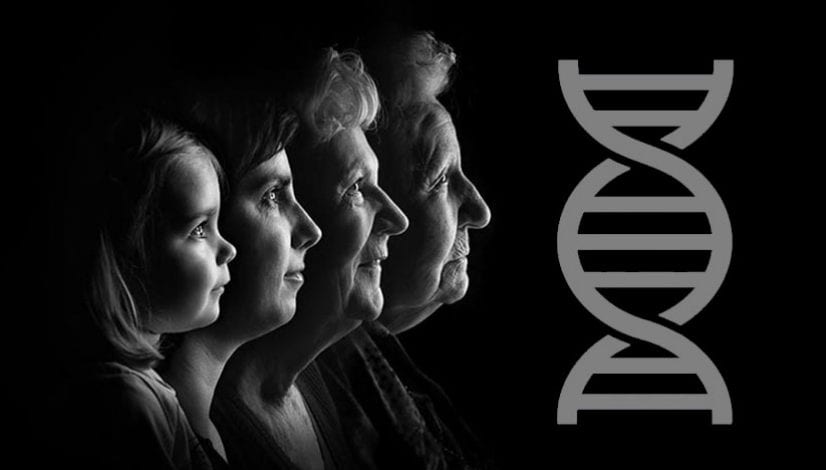Is Cancer Hereditary? Know your Risk
Cancer can be a genetic disease, according to the National Institutes of Health. In fact, genetic mutations you may inherit play a role in 5 to 10% of all cancers.
Researchers have identified mutations in genes with more than 50 types of hereditary syndromes, which have links to cancer. These may be risk factors that predispose you to developing a certain type of malignancy.
Genetic tests can help identify some of these mutations. We know that’s especially true with breast cancer. But it’s also true with other cancers as well.
Lung, prostate, and brain cancer are among those with hereditary links.
So, know your risks.
Is Lung Cancer Hereditary?
A 2017 study suggests that 8% of lung cancers could be linked to a genetic predisposition. This may be especially true for younger patients, those who never smoked and women.
According to the National Cancer Institute, inherited mutations may increase a person’s chance of developing small cell lung cancer, which is an aggressive form of lung cancer. However, patients with these mutations might respond better to treatment. That’s according to a study in Science Translational Medicine from 2021.
Familial risk of lung cancer can also be associated with similar lifestyles of family members and living in similar environments, like homes with second-hand smoke.
Race and ethnicity may also play a role.
The Surveillance, Epidemiology and End Results Program, also known as SEER, suggests African Americans have a greater chance of developing lung cancer than other racial or ethnic groups.
Is Prostate Cancer Hereditary?
According to the American Cancer Society, between 5 and 10% of prostate cancer cases may be caused by inherited genetic mutations.
Men who have a relative with prostate cancer are twice as likely to also develop the disease. The risk tends to be higher if that relative was diagnosed before turning 65, according to the Prostate Cancer Foundation.
In the United States, African American men are 75% more likely to get prostate cancer compared to white men. African American men are also more than twice as likely to die from prostate cancer. Scientists are still trying to understand why but is likely due to not seeing a doctor on a regular basis.
On the other hand, Asian-American men and Latino men have the lowest incidences of prostate cancer.
Is Brain Cancer Hereditary?
According to Cancer.net, from the American Society of Clinical Oncology, about 5% of brain tumors may have a hereditary link. Researchers have also found clusters of brain cancer within families, and they’re working to understand why. It may have to do with environmental exposure. For instance, having contact with chemical, biological, or physical substances found in air, water, food, or soil that may have a harmful effect on a person’s health.
Examples of environmental exposures include UV radiation from the sun and cigarette smoke, radon, electromagnetic fields, or other forms of air pollution.
Other risk factors for brain cancer include age, gender, race, and ethnicity.
Brain Cancer in Children
Brain cancer tends to be more common in children than adults. They most commonly develop in children ages 5 to 8. Also called low-grade gliomas, these are the most common brain tumors in children.
“Compared to adults, children are more likely to develop tumors in the lower parts of the brain – the brain stem and cerebellum – which are areas that affect movement and coordination,” says Mark Kieran, MD, PhD, director of Pediatric Medical Neuro-Oncology at Dana-Farber/Boston Children’s Cancer and Blood Disorders.
Men have a higher risk of brain cancer. But some brain tumors, like meningiomas, which are non-cancerous, are more common in women.
Caucasians are more likely to develop gliomas, a common form of brain cancer accounting for 33% of all brain cancer cases, but they are less likely to develop meningiomas when compared to African Americans.
And those from Northern Europe are two times as likely to develop brain tumors as those from Japan.
Are Brain cancer Rates Increasing?
According to Health Daily News, Malignant brain tumor rates are declining among U.S. adults, but rates of noncancerous tumors are on the rise, likely due to increased awareness and improvements in diagnosis.
Much of this is being studied by scientists to understand the connections and possibly create better detection and treatment options.
Cancer Treatment Miami
If you or a loved one is diagnosed with lung, prostate or brain cancer, the experts at CyberKnife Center of Miami are here to help.
We offer non-invasive radiation therapy for many types of cancer.
CyberKnife Miami uses state-of-the-art radiation called Stereotactic Body Radiation Therapy or SBRT to treat cancer with precision, fewer side effects and less downtime.
Cyberknife Miami treats patients from Miami-Dade, Broward, Palm Beach and Monroe counties as well as patients from across the country and even the world.
If you would like to find out more about cancer treatment with CyberKnife, call us at 305-279-2900 or go to our website now for more information www.cyberknifemiami.com.

